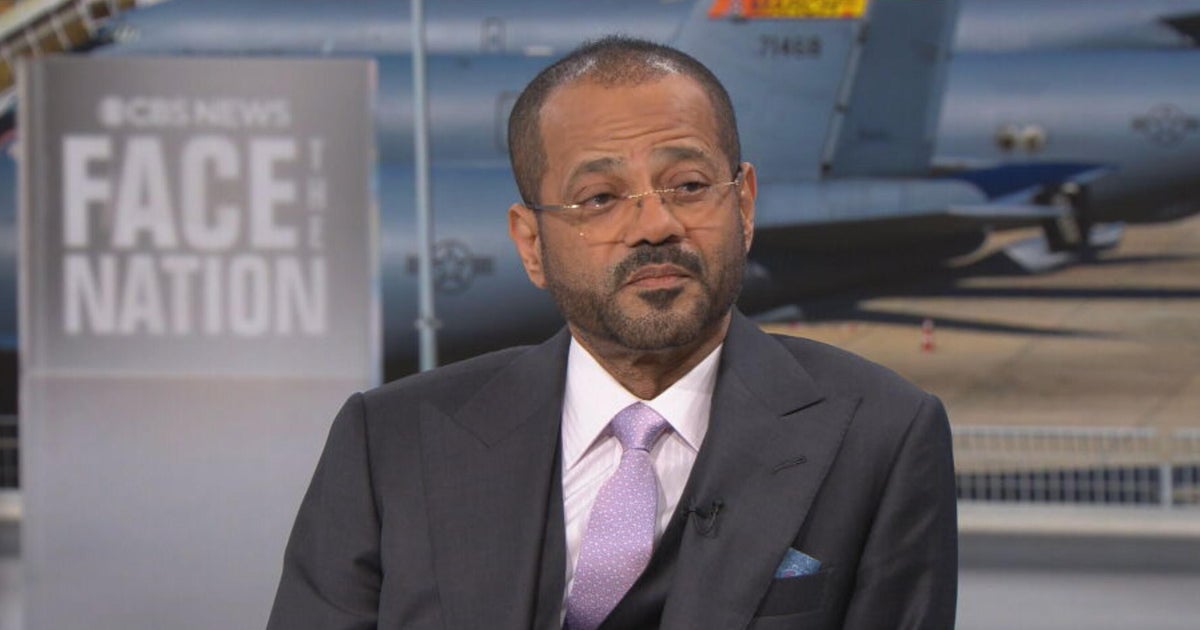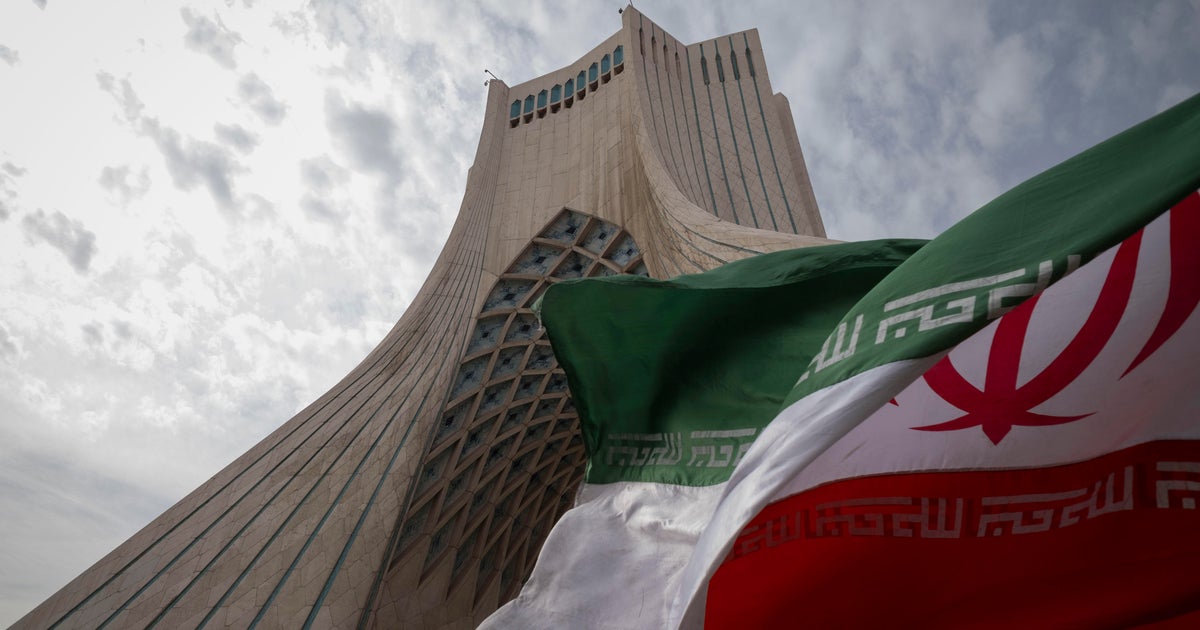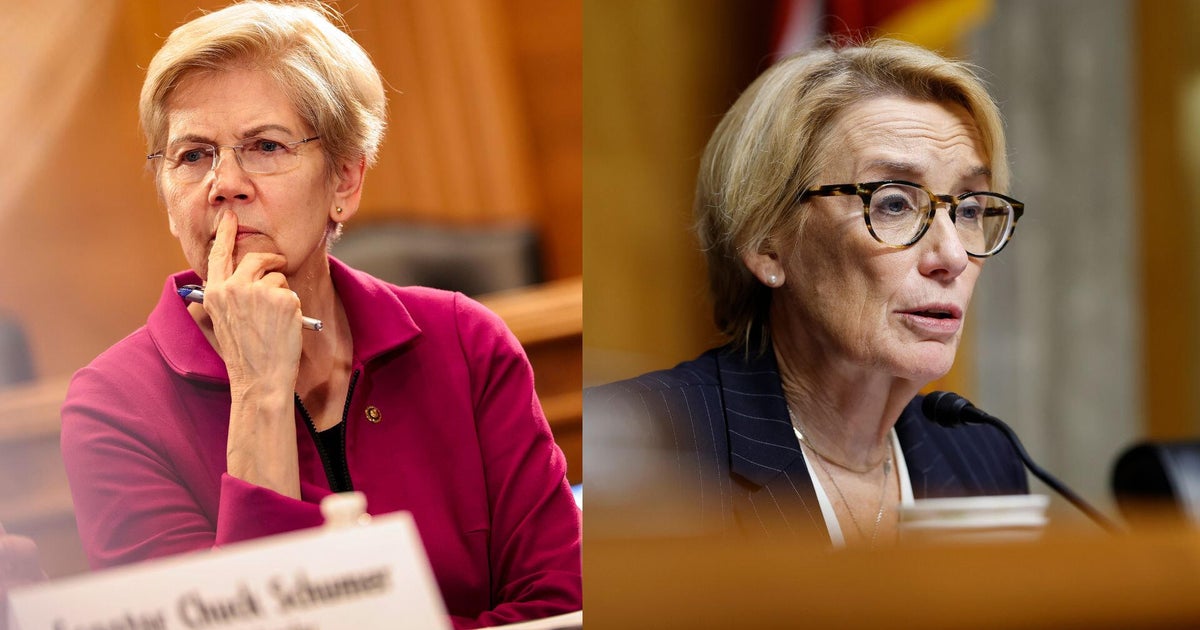Transcript: Secretary of State Rex Tillerson on "Face the Nation," Oct. 15, 2017
Secretary of State Rex Tillerson joined "Face the Nation" Sunday to discuss the administration's new way forward with the Iran nuclear agreement and the administration's tougher line on Iran, a country which Mr. Trump has repeatedly linked to terror organizations and accused of supporting destabilizing regimes like the one in Syria.
What follows is a transcript of the interview, which aired Sunday, October 15, 2017, on "Face the Nation."
JOHN DICKERSON: Welcome, Mr. Secretary. First to the interview our Elizabeth Palmer did with Foreign Minister Zarif, he said that you didn't give the Iranians a heads-up. Why not?
REX TILLERSON: Well, we'd had an exchange on the margins of the U.N. General Assembly meeting. And so I think he had a pretty good sense of where this decision the president would take would likely go. But we did speak with all the other signatories to the joint commission plan of action in the Iran nuclear agreement to ensure that they understood exactly the decision the president was taking.
JOHN DICKERSON: But if you're trying to get Iran to change and agree to some new terms, or maybe you're not, why not talk to them? Why not -- you know how these negotiations work. You want to talk to the other side.
REX TILLERSON: I think, you know, the time will come when we do need to engage with Iran. We want to ensure though that our friends and allies and the other parties to the nuclear agreement have great clarity around the president's policy, which is far beyond just the nuclear agreement, John. This Iran policy really has three important elements to it. And the president outlined all of those in his speech.
And I think one of the unfortunate aspects of our relations with Iran over the last several years has been it has been defined almost entirely by this nuclear agreement to the exclusion of so many other issues that we need to deal with with Iran. So, part of this conversation is to deal with the nuclear arrangement but also deal with these broader issues that concern us.
JOHN DICKERSON: What the European allies, the other signatories to this say is, yes, they agree with you with all those other issues. But they say you do them in two different parts, the way we used to do it with the Soviets. You negotiate on the nuclear. You lock in gains there. Then you work on these other things. The Senate passed sanctions against Iran over the summer. So you work that other channel, but you don't jeopardize what you've got locked in on this agreement. Why are they wrong?
REX TILLERSON: Well, they're not wrong. And in fact that's exactly what the president's decision I think reflects, is that the president has said, "Look, we're going to decertify under the Iranian Review Act." This is a domestic law. It is not a decertification under the nuclear agreement that involves the multilateral parties. But he is I think signaling to Iran and to our other partners there are serious flaws in this agreement.
Everyone acknowledges there are serious flaws. And so he would like to get the Congress to give us their sense of this issue so we have a strong voice, a strong unified voice once and for all representing the American position, which then allows us to engage with friends, and allies, and other signatories around how do we address these gaps and these flaws in this nuclear agreement.
JOHN DICKERSON: If Congress doesn't act, if they don't get the 60 votes, what happens? Does that mean the agreement's dead? Is that what the president was saying?
REX TILLERSON: Well, there's three options now that the Congress has. The Congress can do nothing, in which case everything maintains the status quo, and it'll be up to the president then to decide how does he want to motivate addressing the gaps in this issue. And as we've discussed this, under the JCPOA, under the nuclear agreement, it may be that we're not able to reopen that agreement with everyone being willing to play. But it doesn't mean we cannot undertake negotiations to address the areas of concern, which are the ballistic missile program, the sunset provisions, ex priori provisions, and perhaps lay a second agreement down alongside of this agreement.
JOHN DICKERSON: So you'd keep the original? I guess what I'm trying to fix on here is it sounded like at the end of his remarks the president said, "A hammer is going to come down if there's no action from Congress, and this first agreement is done. The U.S. is out." Is that a misunderstanding? Or is that the message?
REX TILLERSON: No, I think the president is being very clear not just to the Congress, but he's being very clear to Iran and to the other signatories to the agreement as well that if we cannot see movement, if we don't see some encouragement that we're going to begin to address these, then there's no reason to stay in. And he has every intention of walking out.
JOHN DICKERSON: What message does this send to the North Koreans? You're in the middle of trying to get them to the table. If you're trying to get them to the table, they look at this. They've looked at the Libya example where Libya gave up its nuclear weapons. Then Gaddafi was overthrown. Why aren't they going to think, "I'm not going to engage in a deal with somebody who changes their minds"?
REX TILLERSON:Well, I think it'd be pretty rich of the North Koreans to take that position. In fact, we had a similar agreement in place with North Koreans back in the 1990's almost exactly like this Iranian agreement. And you can see what it's led to, where we find ourselves today.
I think the message to the North Koreans is we have a policy towards North Korea's nuclear program that's the same as the Chinese, the same as the Russians, the same as the regional players. There will be a denuclearized Korean peninsula. And so any agreement with the North Koreas is going to be a very different agreement than the kind that we're dealing with with Iran.
JOHN DICKERSON: Although in the '90s they argue that Congress undercut the agreement. But let me ask you about North Korea. They did not test a missile on the 10th of October. Some people thought they might. Is that a big signal?
REX TILLERSON: We'll see. We'll wait and see, John. I think that was a big anniversary date for them. We know we have the Chinese party congress about to get underway this week. There are any number of events in the past they have undertaken some type of provocative act. So we'll watch. We'll wait. We'll see. We also listen to their public pronouncements as well.
JOHN DICKERSON: Let me ask you about your relationship with the president. A lot of talk about it. Senator Bob Corker, chairman of the Foreign Relations Committee, somebody you're working with on the Iran agreement, not a person known for saying just anything that comes into his head, has said two things. Last week he said that you were not being supported in a way that he hoped a secretary of state would be supported. And this week he put a finer point on it and said you're being publicly castrated by the president. What's going on here?
REX TILLERSON: Well, I think, you know, the way the president operates in terms of causing action under his foreign policy decisions but also his domestic policy decisions, I think sometimes people are challenged to put all that together. What I would say is when it comes to North Korean policy, or whether it comes to this Iranian policy, or the recent South Asian policy, there is absolute alignment between the State Department, the other departments in the cabinet, and the president's objectives. The president's a very unconventional person, as we all know, in terms of how he communicates, how he likes to create action-forcing events. And so the president often takes steps to force an action when he feels things are just not moving.
JOHN DICKERSON: But I guess what Senator Corker is saying this action-forcing event comes at your expense when you're trying to deal with other countries and they see you being undermined. Is Corker totally off base here?
REX TILLERSON: What I would say is with respect to the example you gave with the Chinese, we have very, very good open channels with the Chinese. The president has a great relationship with President Xi. I have a great relationship with the state counselor. There is clarity around what we are attempting to do with North Korea and how we are working with China to achieve the outcome in North Korea that we all want. So there is no confusion among the people that matter.
JOHN DICKERSON: So Corker's confused about how this works?
REX TILLERSON: Well, I know the appearance of it certainly looks like there's sometimes disunity. It requires a lot of work on all of our part to coordinate these efforts so that we are clearly driving towards the objective, which is a denuclearized North Korea.
JOHN DICKERSON: Let me ask you about the other side of this, which is if people on the outside need to know you speak for the president, there are also people who are nervous about everything that's happening in the world. And they want the president to get clear advice from his advisors, they don't want a fight in the dugout. Are you able to tell the president what's on your mind and have the president listen to you and maybe change his mind?
REX TILLERSON: One of the relationship issues I value the greatest is that the president wants to know what I think. And so I always present my view of that. And sometimes that's an alternate view to that of others. The president listens to all of that, he takes all that information in. Sometimes it involves numerous conversations for him to come to a decision -- which I think is a very appropriate way to proceed on issues that are as important as these. But I have complete freedom to express my views to the president, and he listens to those views.
JOHN DICKERSON: And he changes his mind?
REX TILLERSON: And, no, we don't agree on everything. Yes, sometimes he changes his mind. And whatever he decides though, he's the president of the United States. I will work as hard as I can to implement his decisions successfully.
JOHN DICKERSON: Does he believe you're wasting your time trying to talk with North Korea?
REX TILLERSON: Our diplomatic--
JOHN DICKERSON: Which is what he said, I should say.
REX TILLERSON: He supports our diplomatic efforts. We're going to maintain those diplomatic efforts. As I have commented to others, our diplomatic efforts will continue until the first bomb is dropped.
JOHN DICKERSON: The other alternative is that you're playing good cop, bad cop. That you're the good cop and the president by saying you're wasting your time is being the bad cop. That's a strategy. But isn't it a little dangerous when you're dealing with North Korea?
REX TILLERSON: It's not one we're going to share with anyone. As the president has said, he has no intention of signaling to people what his next step will be. He's not going to give them advanced warning of what his next action will be. I think that makes it very effective.
JOHN DICKERSON: All right. Mr. Secretary, thanks so much for being with us.
REX TILLERSON: My pleasure, John.



